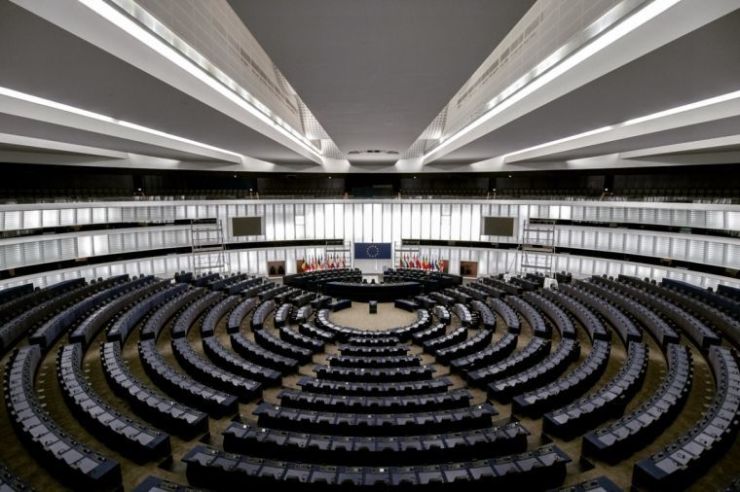
The European Parliament has been challenged over a new report on the persecution of religious minorities that criticises religion as "an important driver of conflict worldwide".
The report was adopted by the European Parliament on Tuesday following a debate.
It "underlines that the instrumentalisation of religion and belief constitutes an important driver of conflict worldwide".
The report has been criticised on a number of points, including its failure to mention the plight of Christians in Africa and the Middle East, despite warnings that they are at risk of being wiped out in some areas.
Critics also raised concerns that the report condemns religions for their beliefs on marriage and the protection of life from conception until natural death.
The report laments that "sexual and reproductive health and rights (SRHR), including abortion, are being banned in the name of religion by both state and non-state actors".
"Deep concern" is expressed about "the misuse and instrumentalisation of belief or religion to impose discriminatory policies" and laws or restrictions "that contradict and undermine the rights of LGBTIQ people", "restrict access to basic services, such as education and health, including sexual and reproductive rights", and which "criminalise abortion in all cases".
The report "calls for the repeal of the relevant policies, laws or restrictions that are often translated into national legislation as secular restrictions".
Speaking during the debate in Strasbourg, Slovak MEP Miriam Lexmann said that the report had been "hijacked" and that the European Parliament should be defending persecuted religious minorities instead of taking "ideological anti-religious stands".
"Mr President, from Nigeria to China, the state of religious freedom continues to deteriorate. From genocide to legal restrictions, hundreds of millions of believers – be they Christians, Muslims, Buddhists, or other groups – are facing terrible suffering every day," she said.
"While I welcome the EP's report on the persecution of religious freedom, I cannot help but express my dismay at the way this report has been hijacked to stigmatise religion itself.
"Today, religious persecution is one of the key drivers of many of the challenges the world faces. And that's why not ideological anti-religious stands, but firm support for the persecuted around the world, together with the appointment of a new special envoy for freedom of religion, supported with the right instruments, must be the priority."
Critics voiced further frustration over the removal of all but one reference to Christianity from the final draft, despite Christians suffering widespread persecution, while concerns were repeatedly expressed for the welfare of atheists, humanists and other non-religious people.
On the role of the Special Envoy for the promotion of freedom of religion or belief outside the EU - a post that has been vacant for over a year - the report said that the next incumbent should also focus on promoting "the rights to non-belief, apostasy and the espousal of atheistic views, while also paying attention to the situation of non-believers at risk".
Elsewhere the report "observes that atheism and non-religious groups are growing rapidly and should be treated equally under the EU policy framework".
Commenting on the report, Jean-Paul Van De Walle, legal counsel with human rights group, ADF International, said, "Nobody should be persecuted because of their faith. It is unacceptable that this report, which is meant to stand in solidarity with those suffering from persecution because of their faith, is openly hostile towards religion.
"By adopting the wording of this report, the European Parliament has undermined its credibility of wanting to address the challenges religious minorities face worldwide."
The Catholic Church in the European Union (COMECE) said that the report would be of no help to the millions of people being persecuted for their religion.
"Any attempt to undermine the right to freedom of thought, conscience and religion and the right to life through abusive interpretations that unduly restrict their legitimate scope or to subject them to newly created and non-consensual 'so-called human rights', including abortion, constitute a serious violation of the international law that discredits the European Union before the international community and before millions of European citizens," said COMECE General Secretary Fr Manuel Barrios Prieto.
"Any treatment of these human rights as second-class rights contradicts the Declaration and Programme of Action of the 1993 Vienna World Conference on Human Rights, which calls on the international community to consider all human rights 'in a fair and equal manner, on the same footing, and with the same emphasis'.
"Furthermore, this motion for resolution, in its current wording, will not be of help for millions of religious believers who are victims of persecution because of their faith, in particular vulnerable women and girls, as their situation will be obscured and rendered invisible by prioritizing other political interests."




